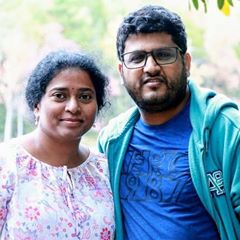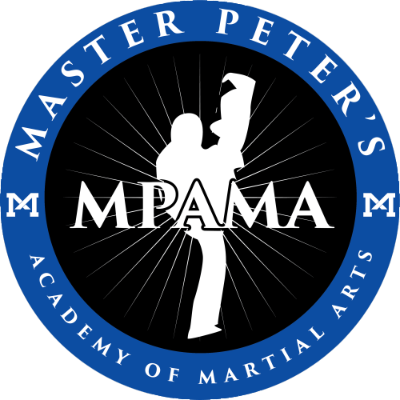Critical Thinking
Problem Solving is a very important skill set that we believe everyone should always develop and keep in their toolbox. The ability to solve problems efficiently is not only useful in personal life, but is a highly sought after trait in the professional world. Critical thinking is one of the essential factors of problem solving, and is a great place to start for those looking to improve on these skills. People of all ages can work on their critical thinking abilities, and it is especially helpful for children to practice.
Critical thinking is all about our own ability to use situational cues, logic, and self-reflection to find the path forward. It is especially handy when the solution is hidden or not very straightforward. Practicing critical thinking skills at an early age will help kids in just about every aspect of life growing up, but especially in school and at work.
There will undoubtedly be times where we face an obstacle that seems difficult to overcome. So, how does critical thinking actually help us solve problems? Well, first things first is to remember that, through the use of critical thinking, every challenge has a solution. Now that we’ve established that, let’s get into how to use our critical thinking skills, through 3 guiding questions.
Where am I?
A great way to practice critical thinking is to ask yourself the 3 questions; the first question being, Where am I? As the question suggests, the first step is to figure out exactly where you are. Of course, the first answer you might give may be your physical location (i.e. “school,” or “work”), but don’t forget to think about this question in more than one way! For instance, this question might also mean “How far along on this task am I?” or “What is my relationship to this challenge?” Answering this question in all these different ways is important, because each answer might give you different bits of insight into the problem, and how to solve it. Establishing where you are, physically and mentally, is a very important first step to critical thinking.

you are here map
What am I doing?
The second question, “What am I doing?,” doesn’t have as many different interpretations as the first one, but is still just as insightful. This question begs you to think deeply about all the things you are doing at the moment as they relate to the problem. The answer to this question includes the things you are doing at that given moment, the actions you are taking that might contribute to the problem, and the efforts you are giving to solve it. It is critical to think about all of these things deeply and honestly, because the things you are currently doing will be sure to shed light on the situation. Maybe something you are doing is directly creating the problem, so the solution is to stop that action. Or, perhaps there is a clue hidden within the work you are currently doing to overcome the challenge. And if you don’t find yourself in either of those situations, thinking about what you are doing may bring you to the realization that there is something you are not doing that you should be. Either way, reflecting on what it is that you are doing in relation to the problem is one of the most essential steps in the critical thinking process.

https://www.worldipreview.com/media/image/web-shutterstock-105518339.jpg
How can I get better?
Finally, the last critical thinking question to ask yourself is, “How can I get better?” This question asks you to evaluate yourself and your actions, and use your answers from the last 2 questions to figure out what to tackle. After you’ve gathered your responses to the other questions, think about how you can do things better in order to succeed. However, be strategic about how you answer and implement this question. Based on your answers from the previous questions, where you need to be doing something better is going to be different. In some cases, you may need to adjust an existing system or action that is not working efficiently, and in other cases you may need to create or start a completely new system or action. Knowing specifically where you need to focus your attention to make something better is crucial to applying this question properly, which is why all three of these questions go hand in hand! This last question is arguably the most important, because it requires you to employ your critical thinking skills in combination with your answers to the other questions to actually create the solution.

https://www.themodernman.com/wp-content/uploads/what-can-i-do-to-be-a-better-person.jpg
In Our Classes…
This week, we will be instilling these 3 questions into the minds of our students during classes. Our goal is to help our kids practice and develop their critical thinking and problem solving skills, and learning to ask yourself and answer these questions is a great way to get the ball rolling! Children often need assistance when learning and mastering certain complex skill sets, and critical thinking is a big one. Throughout our classes, we will be reminding our students to use these 3 questions when facing a challenge. Our awesome team of instructors will be guiding our kids through this 3-step process, and will help our students develop this essential skill set!
In Conclusion
In summary, the three questions we discussed are a great way to practice critical thinking and problem solving, no matter how far along you are on the journey of life. There will always be another challenge to face or obstacle to overcome, so keeping these questions at the ready will benefit us in countless situations. As an added benefit, these questions can assist you in other areas of your life as well, like self improvement. If there’s anything you want to work on and make better, you’ll find that these questions will help you there as well! Just remember that these three questions are interconnected and interrelated, so it’s important that you answer each one thoughtfully and honestly. Give these three questions a try next time you find yourself struggling with a problem, and see how well they work!
What are some other good critical thinking questions to ask yourself?
What other areas of life can these 3 questions be implemented?








